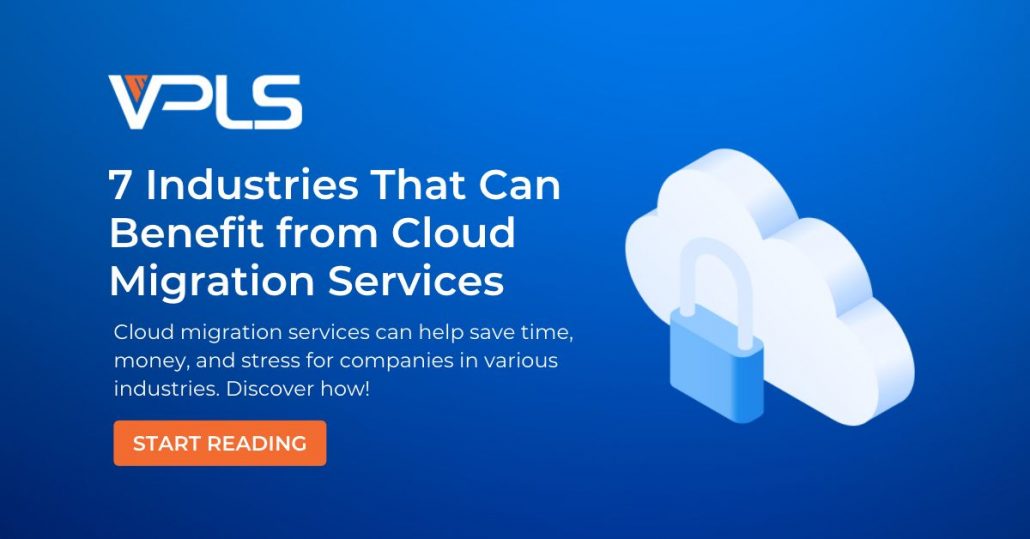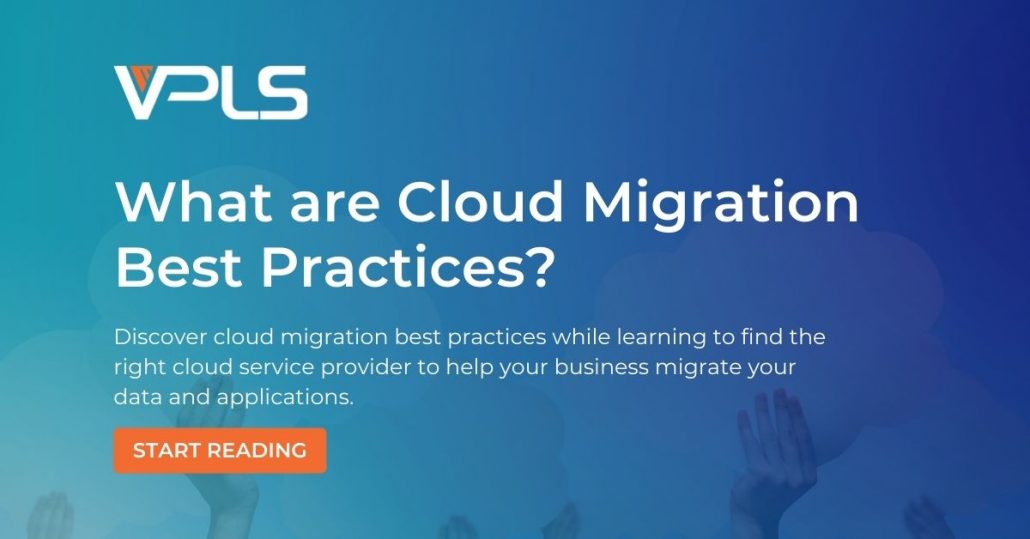7 Industries That Can Benefit from Cloud Migration Services
Published
Written by
Filed under
Cloud migration services can be a great way to help your business grow through cloud-based solutions. Cloud-based technologies are becoming more and more common in the workplace, with many businesses moving their data from on-site servers to cloud storage. Here are 7 different industries that we believe could benefit the most from cloud migration services and why.
Here are 7 different industries that we believe could benefit the most from cloud migration services and why:
1. Finance
The finance industry is a great fit for cloud migration for a number of reasons. Specifically, cloud migration services allow you to combine cloud-based storage with software-as-a-service (SaaS). Cloud migration also eliminates the need for onsite servers, which can be costly and prone to outages.
A financial data breach can cause global markets to panic, cost families their life savings, and ruin businesses. Keeping data secure through strategic cloud migration not only mitigates these risks, but it helps build a safety net with redundancies that can catch any error and correct it with precision.
2. Healthcare
The healthcare industry is another great candidate for cloud migration services because of security reasons. Data breaches are more common in hospitals than most people think, and they pose irreparable risks at times. Cloud migration services can help healthcare providers keep their data safe, which ultimately could save lives.
The healthcare industry is a multi-trillion-dollar entity in the US alone, and security breaches can have ripple effects that can cost lives. There is simply too much at stake to not apply the best cloud migration services on the market to the healthcare sector.
3. Legal
The legal industry is another good candidate for cloud migration for security reasons. Legal professionals are often targets for cyber-attacks, and cloud migration can make it easier to prevent this from happening in the future. These attacks run the gamut as far as scale and origins. They can be financially motivated or intend to steal information from sensitive and confidential documents.
Legal entities rely on trust and safety as the backbone of their business. In the modern world, these are constantly under threat due to digital exposure and weaknesses in data security. With cloud migration services, law firms and lawyers can keep their data safe, appropriately stored, and appropriately distributed.
4. Education
As an educational institution, you’ll want to employ cloud migration services sooner than later, even if you’re the first in your area to do so. Schools are typically behind the times when it comes to cloud migration. They need cloud services because of two primary reasons: cost and security.
With cloud migration, schools can save money on infrastructure by moving their data over while also staying safe with encrypted connections that make them more secure. The more secure a school is, the more the school can focus on its most important goal: educating its students.
5. Small Business
As a small business, cloud migration services are vital to your long-term success and short-term bottom lines. No matter the size of your organization, cloud migration can help you do more with less in terms of the infrastructure that you need to maintain and run without sacrificing performance or service quality. Cloud migrations also allow for an increased set of features that are customized to meet specific demands that enterprises may not have.
Hiring a service provider who knows and understands small business needs is crucial to finding a solution that is efficient and effective for cloud migration solutions.
6. Energy
The energy sector of the global services industry is a key part of both trade and monetary movement all over the world. Energy industry cloud migrations must comply with the highest standards of security to avoid a situation like the Colonial Pipeline hack. This incident was a perfect example of how adequate data protection could avoid a major interruption in the distribution of crucial energy resources.
Cloud migration services can help the energy sector by providing a cloud-based infrastructure that allows for the virtualization of resources and data.
7. Hospitality
Restaurants, hotels, transportation services, and recreational services all combine to make hospitality a powerful economic force in the global economy. This industry relies heavily on data and logistics from customers around the world. These customers trust hotels with their sensitive billing and personal information, and a security breach could be devastating to its reputation.
With a good cloud migration service, this valuable data can be protected, segmented, and distributed in a way that offers guests peace of mind, which is one of the top goals in the industry across the board.
How VPLS can help you with world-class cloud migration services...
There are so many ways that cloud migration services can help save time, money, and stress for your company. If you’re still not convinced about how much value migrating to a hybrid cloud or cloud environment can offer your organization, don’t worry! Learn more about VPLS and the cloud migration services we offer by following this link here, or call us at (888) 365-2656!
Read More from this Author
If you enjoyed this article, you'll probably like:




